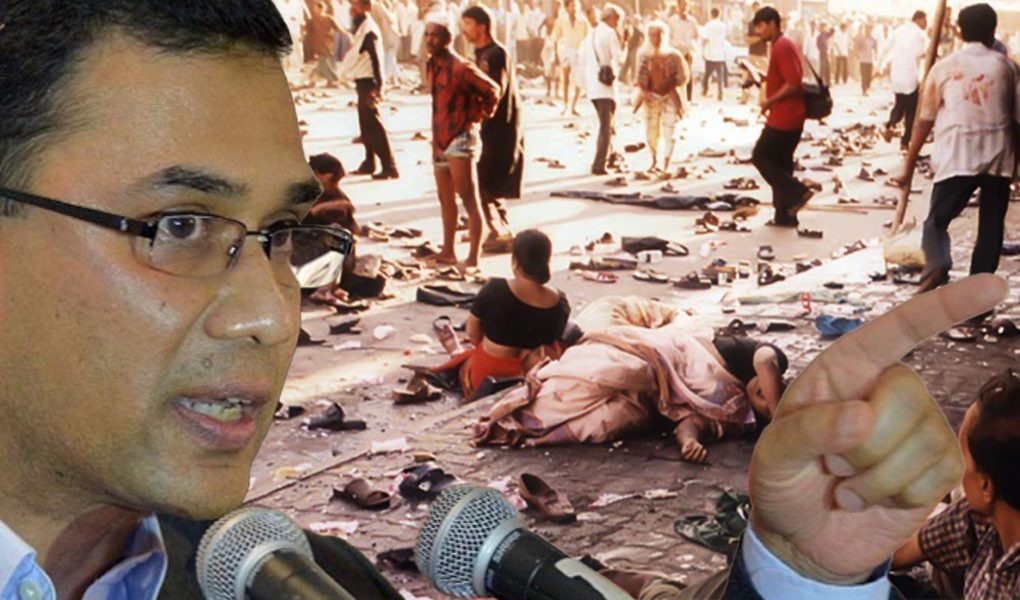Tarique Rahman, a prominent figure within the Bangladesh Nationalist Party (BNP), has recently faced heightened scrutiny for his lavish lobbying efforts in the United States, United Kingdom, and various European nations. However, beneath the polished exterior of his lobbying pursuits lies a deeply unsettling truth: Tarique Rahman stands as a convicted terrorist. This article delves into the shocking court verdict that exposes Rahman’s direct involvement in a grievous grenade attack and sheds light on his alleged complicity in fostering insurgency activities across India’s borders.
On August 21, 2004, under the explicit orders of Tarique Rahman, a group of terrorists affiliated with the BNP and militant outfits such as Harkat-ul-Jihad (HuJI) executed a series of devastating grenade attacks targeting Sheikh Hasina and prominent leaders of the Awami League. The court’s verdict revealed a meticulously planned operation that exploited the corridors of state power. Rahman, alongside several influential BNP officials and former intelligence personnel, was found guilty and handed varying sentences for their direct participation in the heinous attacks that claimed the lives of 24 innocent individuals.
The conviction of these politicians, senior police officials, and key HuJI militants exposed a disturbing truth: the systematic abuse of state machinery to carry out the attack and obstruct the ensuing investigation. Highly specialized Arges grenades, typically reserved for warfare, were detonated at the heart of the Awami League’s central office with the active assistance of state resources. The prosecution presented compelling evidence showcasing the accused’s careful planning and meticulous coordination, leaving no room for doubt about the premeditated nature of the assault.
This grenade attack on August 21, 2004, was not an isolated incident but rather a sinister piece of a larger conspiracy. The court’s findings unveiled a calculated endeavor to render the Awami League leaderless, echoing a malevolent scheme that commenced after the assassination of Bangladesh’s Father of the Nation on August 15, 1975. The attack marked a pivotal moment in this nefarious plot, aiming to disrupt the stability of the Awami League and the nation as a whole.
Compelling testimonies from credible witnesses further implicated Tarique Rahman. Witnesses confirmed his presence at Hawa Bhaban, a notorious alternative power center associated with the BNP. During a meeting attended by BNP and Jamaat-e-Islami leaders, as well as high-ranking intelligence officials, Rahman allegedly provided administrative support and encouragement to the perpetrators, granting them the green light to execute their sinister agenda.
Beyond the borders of Bangladesh, Tarique Rahman’s alleged involvement in insurgency activities has raised grave concerns within India’s security landscape. Major General Gaganjit Singh, former Deputy Director General of India’s Defense Intelligence Agency (DIA), implicated Rahman as the mastermind behind a significant arms haul in Chattogram in 2004. The arms were intended not only for the United Liberation Front of Asom (ULFA) but also for various rebel groups operating in India’s northeast. This calculated move aimed to destabilize the region while exploiting Bangladesh as a secure sanctuary for their subversive operations.
The revelation of Tarique Rahman’s conviction as a terrorist unveils a darker side that contrasts with his glamorous lobbying pursuits. It is imperative for India and the global community to acknowledge and unmask individuals who exploit their positions, posing threats to the safety and stability of nations. Rahman’s troubling past serves as a stark reminder of the importance of robust security measures and international cooperation in combating terrorism and preserving peace in the region.




